
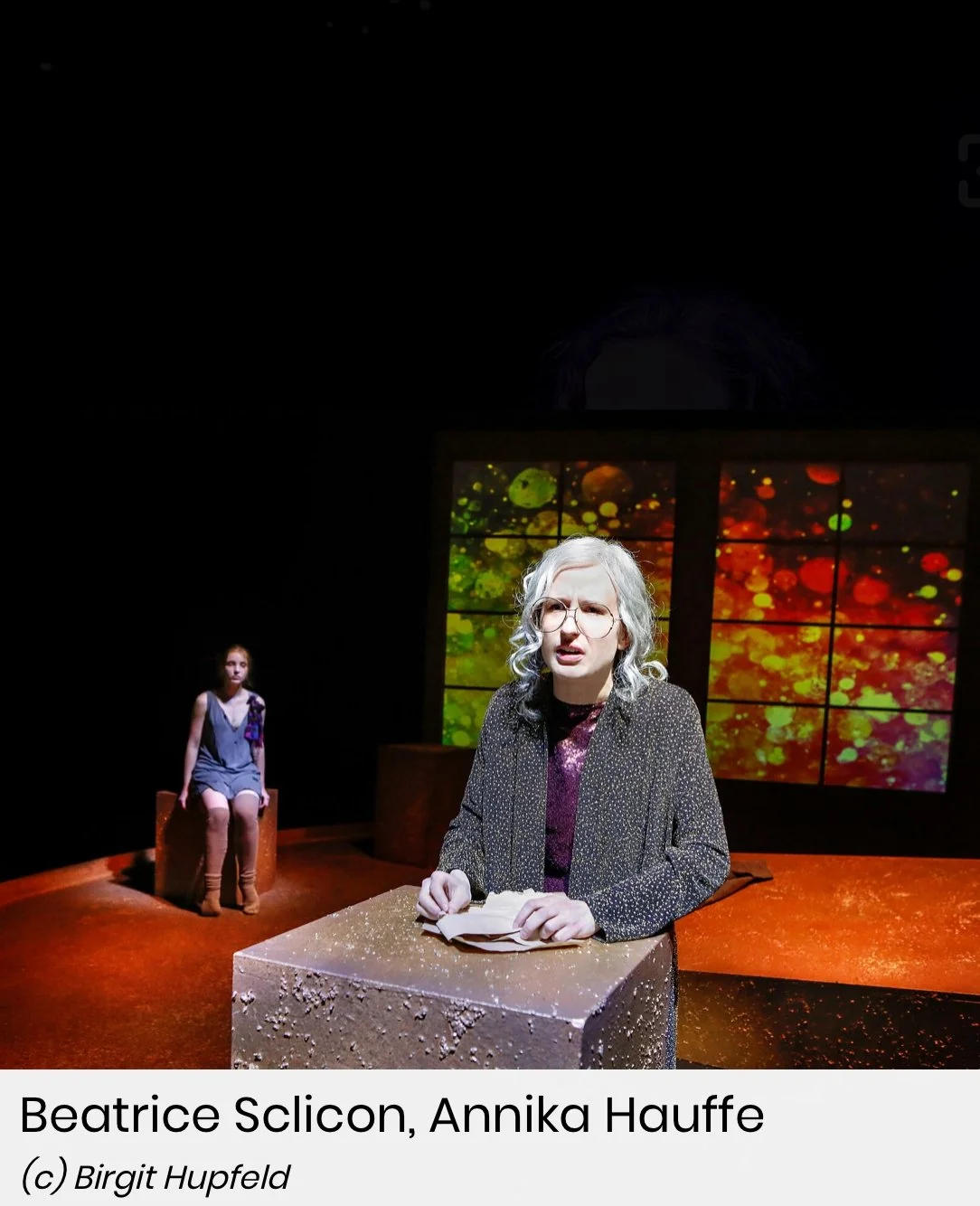
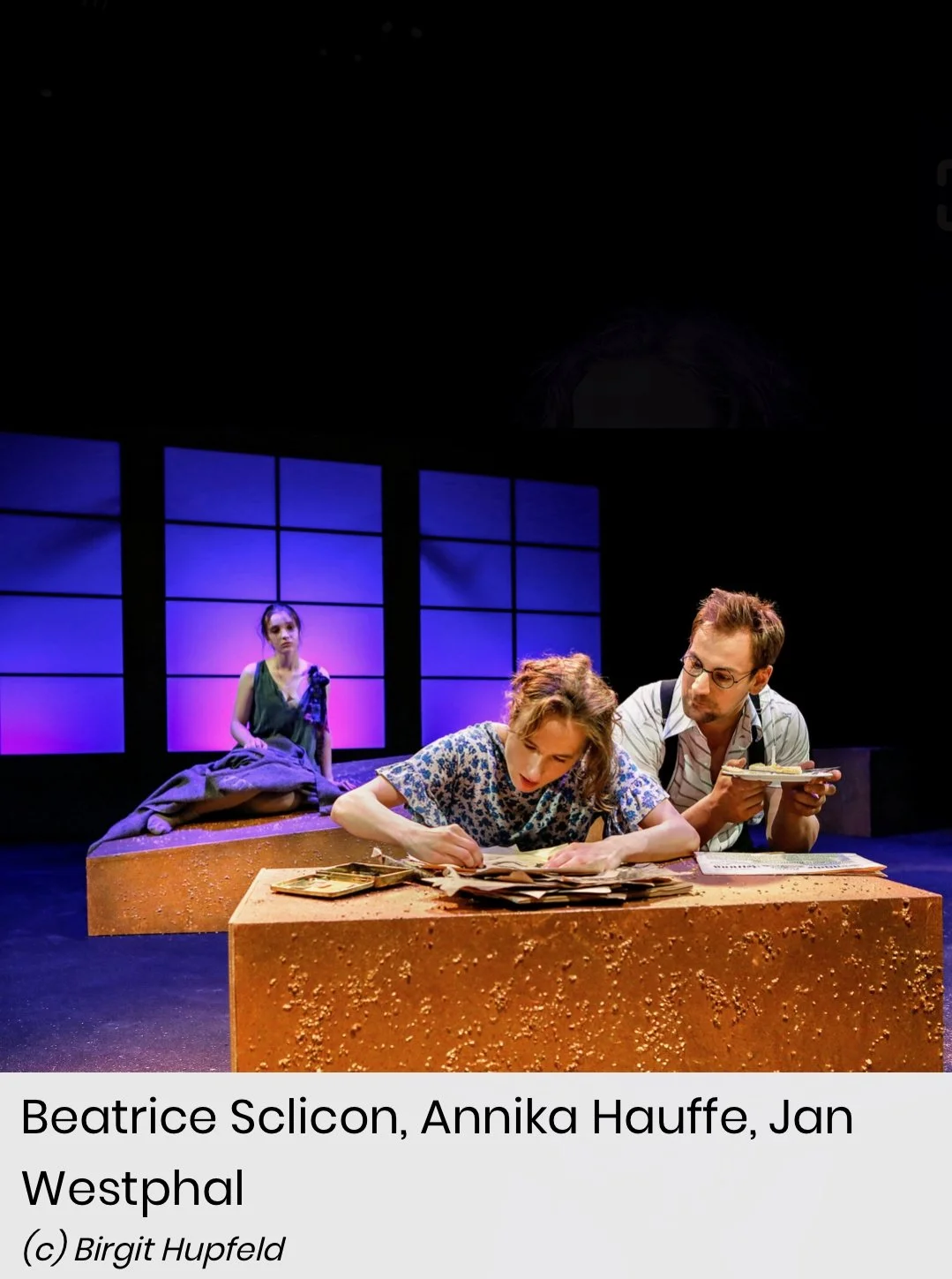
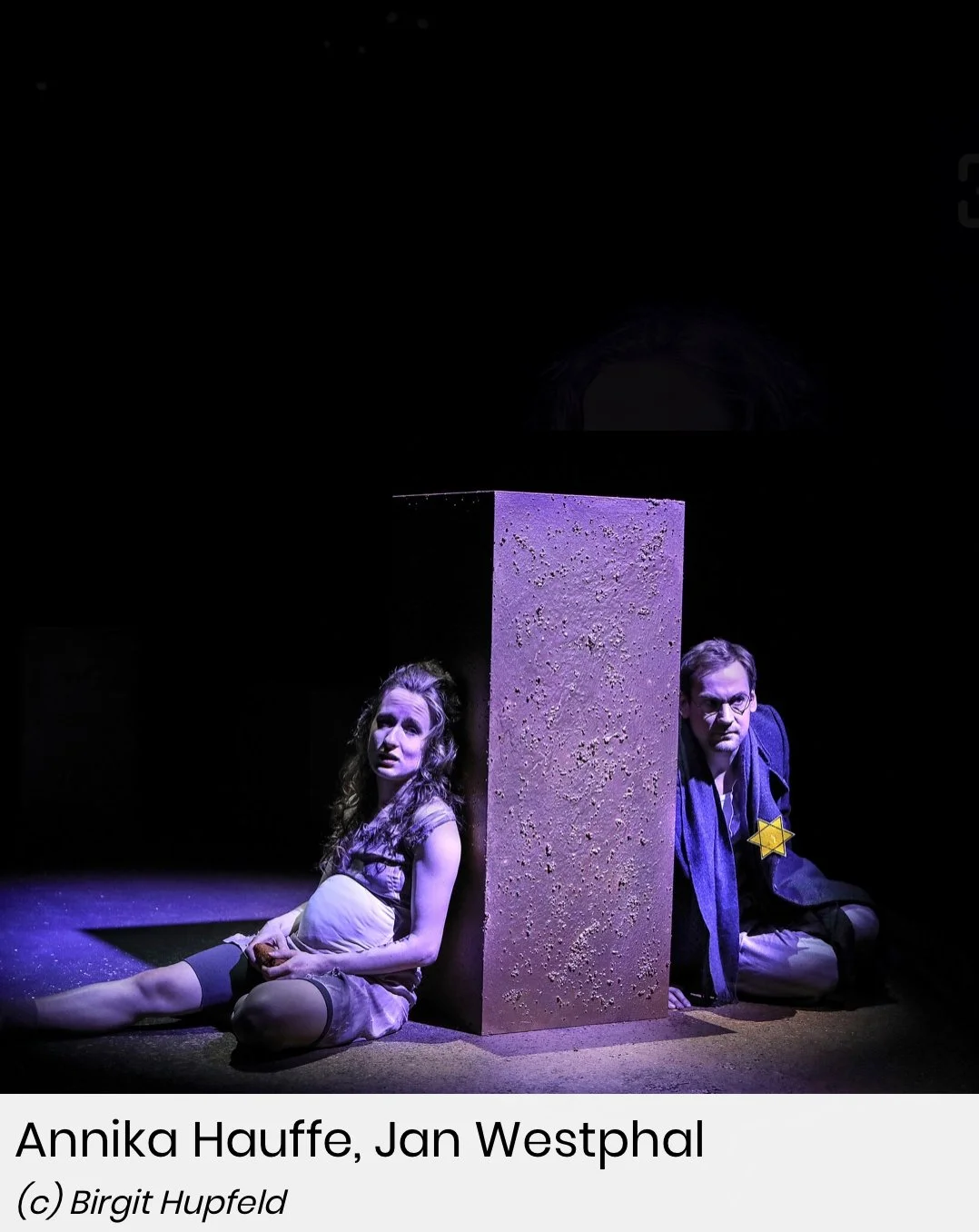
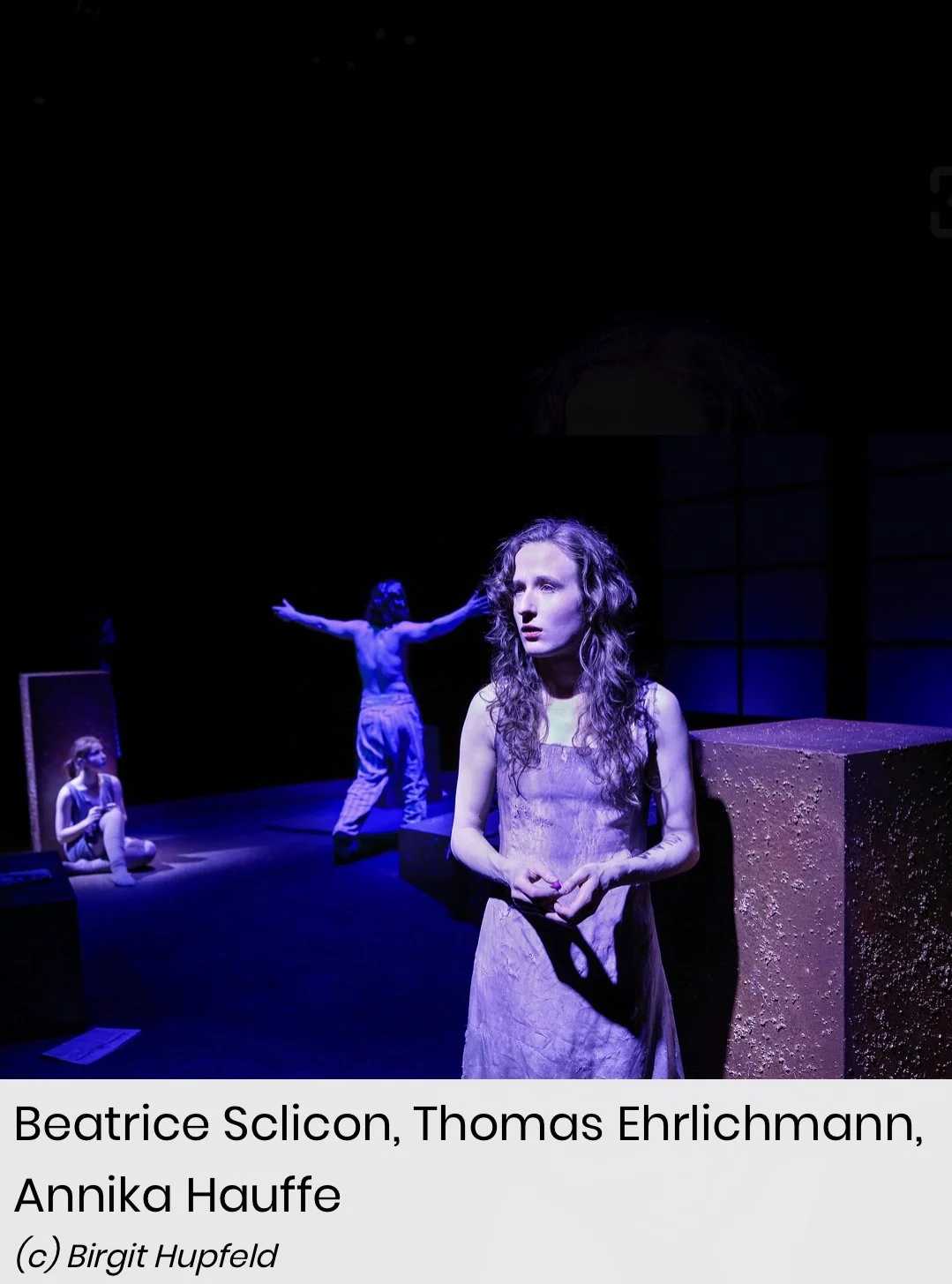
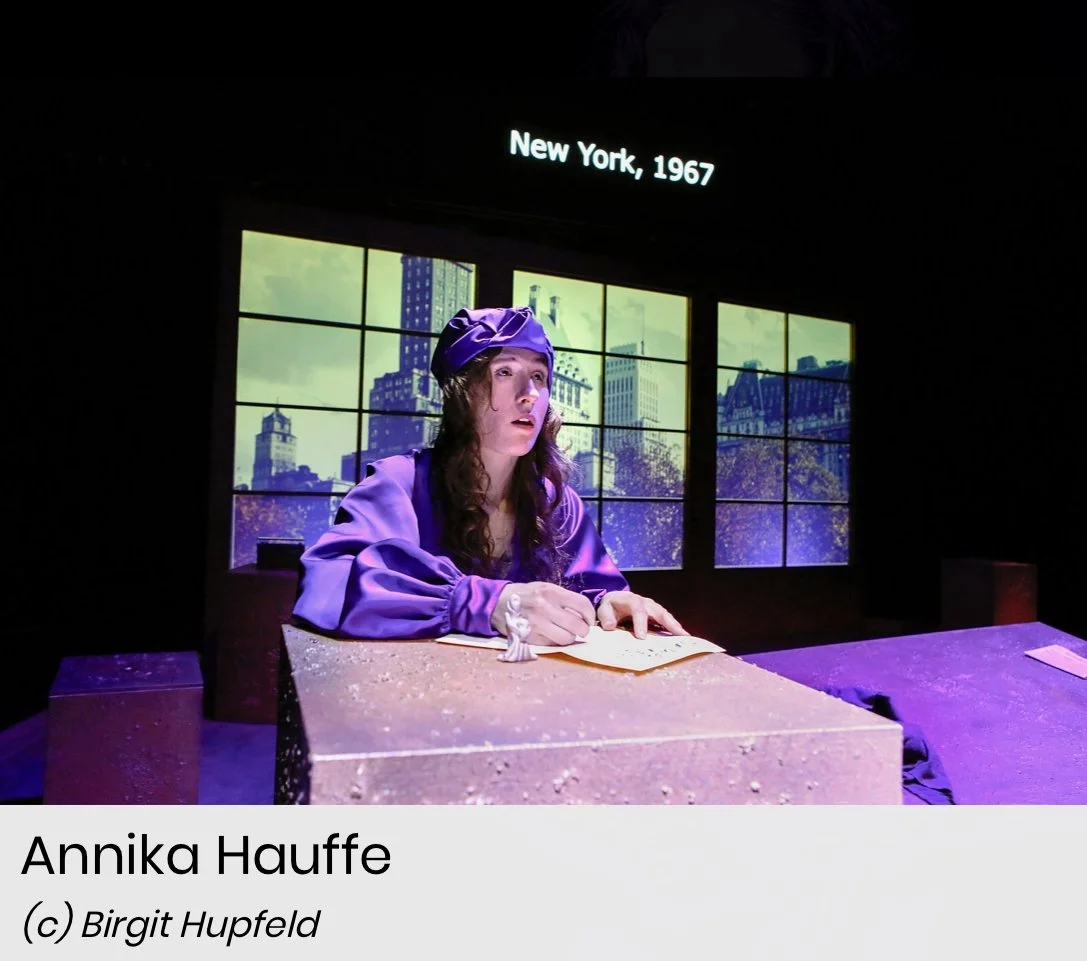
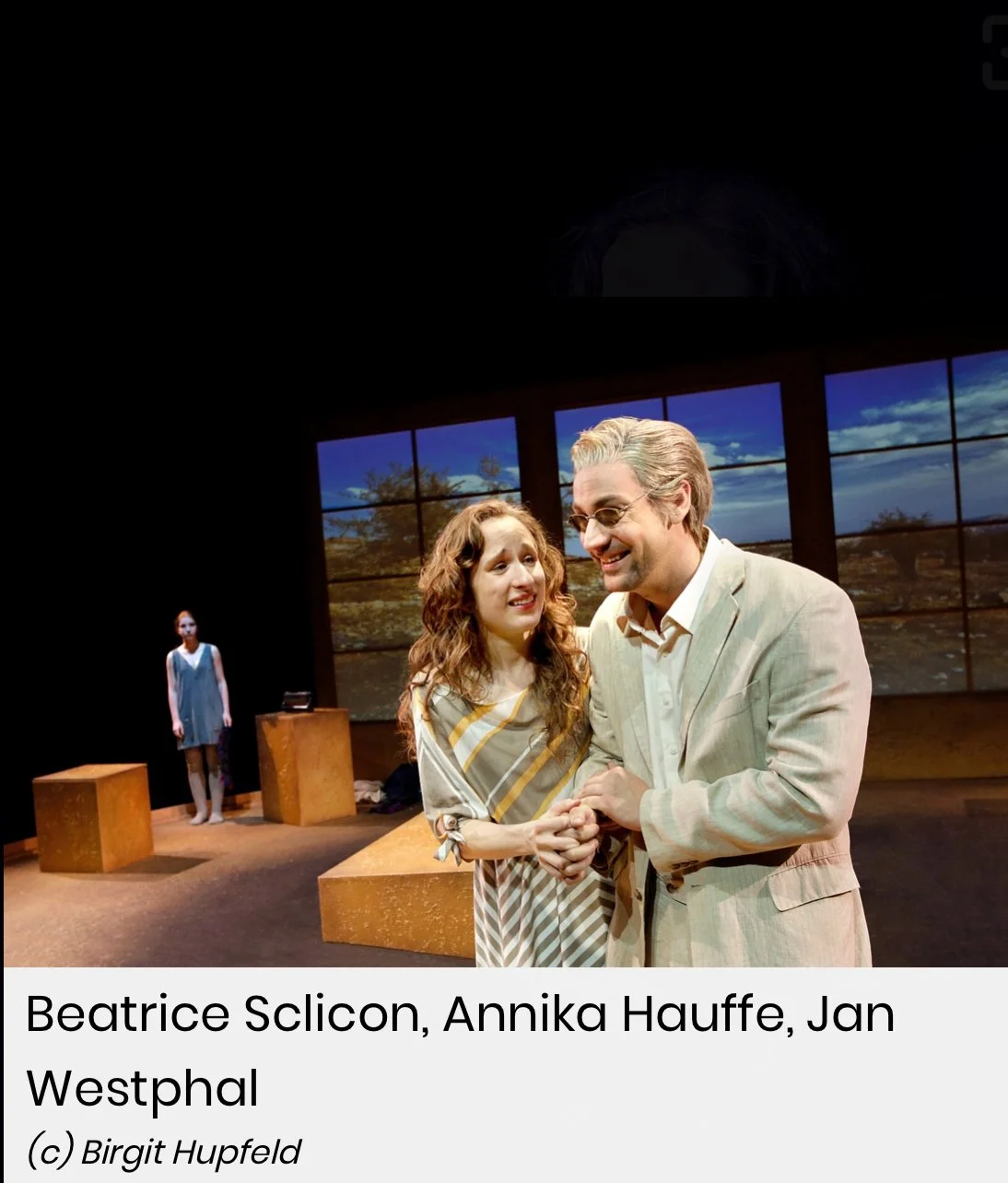
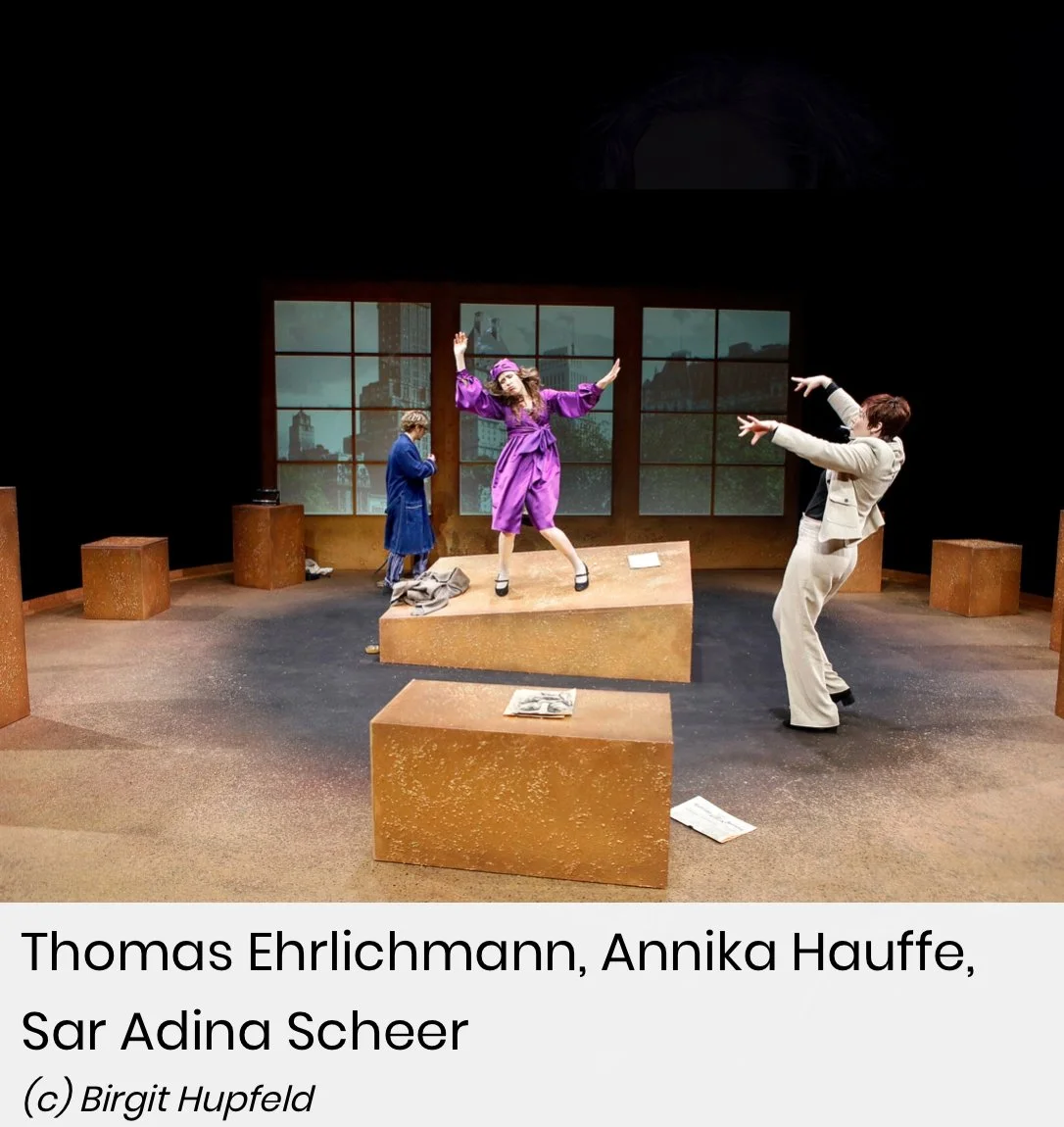
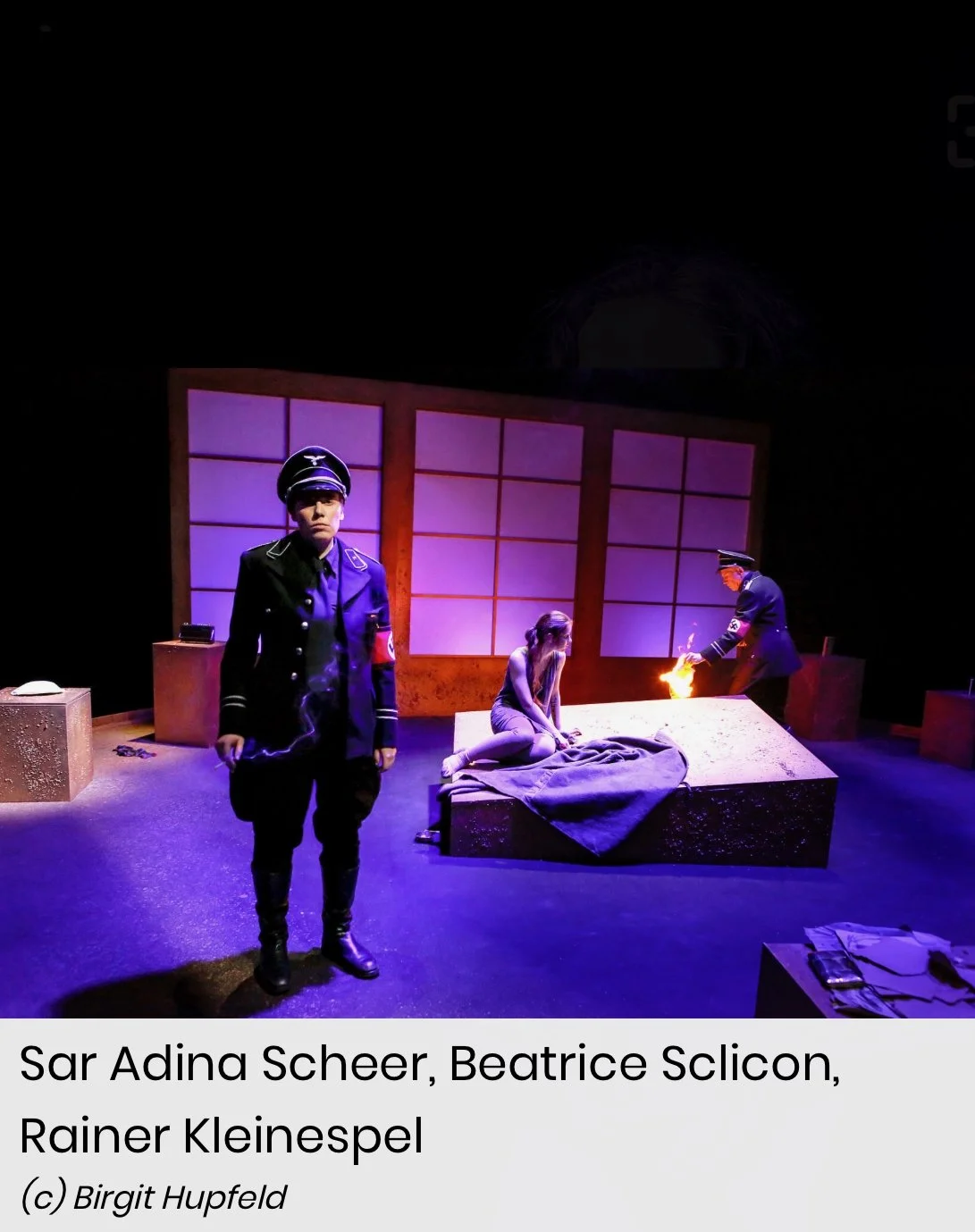

Untitled (194418) is a play written by Elinor Milchan and Sharon Burstein-Bichachi
What happens when your final moment is the only escape from reality?
"Untitled (194418)" explores the profound weight of missed opportunities and human potential. Beyond documenting what people achieved in their lives, the theatrical piece examines the infinite possibilities that the end of a life erases - chances to love, create, experience, and leave lasting impacts on the world and others.
Drawing from historical documentation of World War II, the play is inspired by the stories of women artists who created within the confines of ghettos and concentration camps, forging worlds from nothingness. These women shared a common thread: their art provided strength, meaning, and hope, not only for themselves but for those around them. From their testimonies emerges the play's protagonist, Nelly, a feminist artist who revolutionizes art during World War II and beyond, by creating works from bread and found materials, establishing a movement known as "Nellyism.
" In her quest for survival, she builds a new life through her art and her life’s mission: "To revive silenced voices, cut short before their time.”
Through a non-linear storytelling, the play deliberately blurs reality and imagination. Characters drift through scenes like ghosts, creating an atmosphere of uncertainty as Nelly confronts her life's pivotal moments.
The narrative takes an unexpected turn with our present time, as Nelly's imagined life intersects with a kibbutz in Israel where lives were lost in October 2023.
Through her dream, we navigate between historical possibilities and contemporary reality, highlighting how countless un-lived lives might have shaped our present world differently.
By approaching Holocaust remembrance through a lens of vitality and "what if" scenarios, the play creates an accessible entry point for diverse audiences to engage with this history and invites us to consider not just what was lost, but what might have been - and what still could be.
Illustration by Friederike Becker
The play premieres in Germany at the Dortmund KJT theater, commemorating 80 years since the end of WWII.